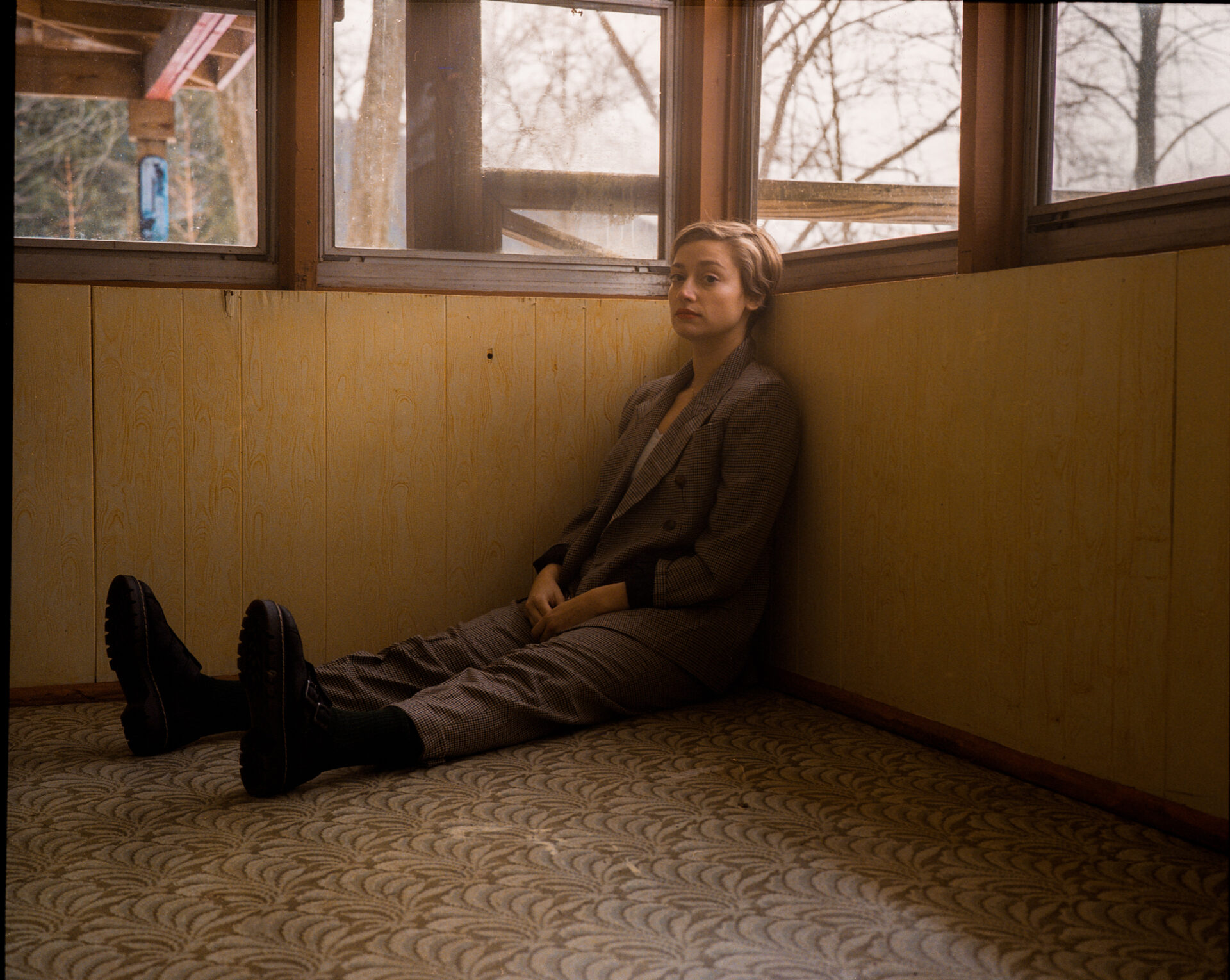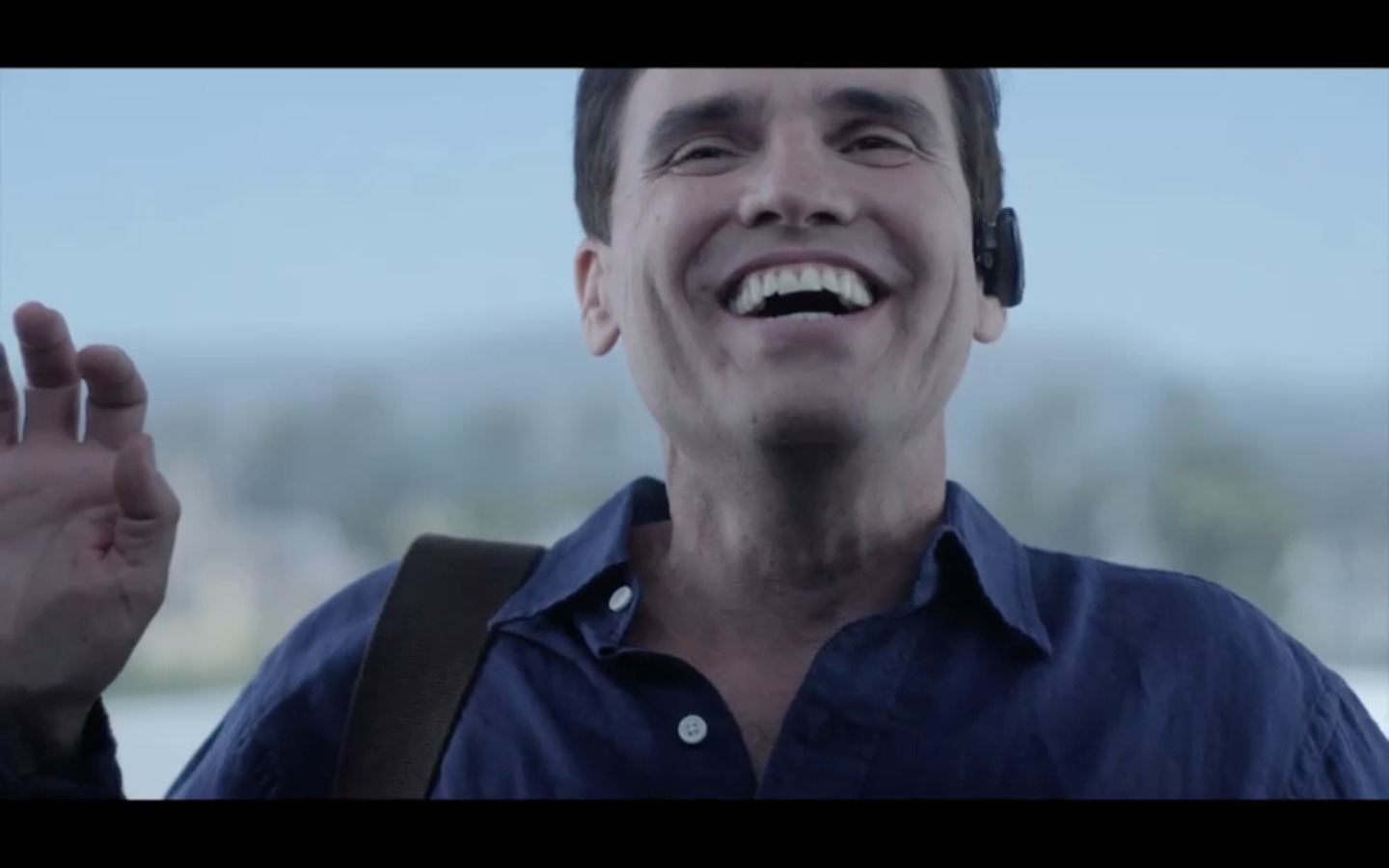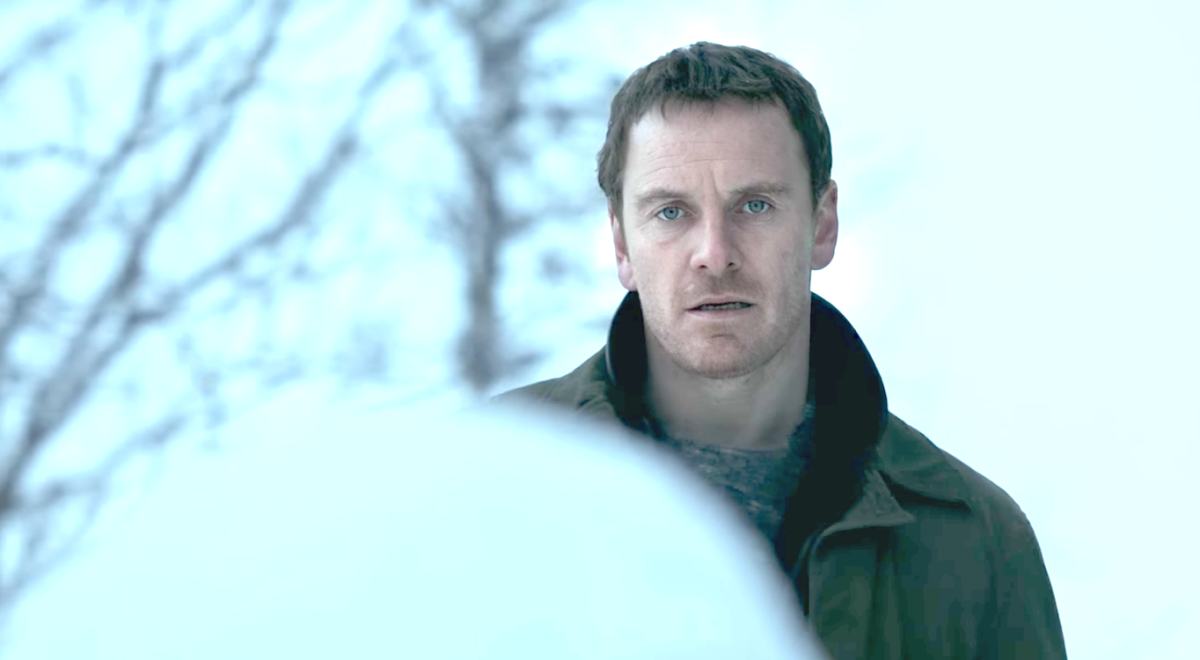Self-discovery and taking care of yourself are two important aspects in life. Knowing who you are as a person, what motivates and inspires you, and the conditions under which you thrive are key for leading your best life. Meanwhile, if you’re one of the 43.8 million adults in the United States who deal with a mental illness in a given year, it’s important for you to receive care for it, find a road forward, and develop self-care routines for yourself. Neither of those are easy tasks, I know. It’s even harder when you’re on the rigorous schedule that comes with the life of a musician. Petal‘s Kiley Lotz knows this all too well. Over the years between her 2015 debut album Shame and the looming release of her follow-up Magic Gone, Lotz has been on a long geographic and personal journey. After coming out as queer, discovering how to take care of herself, and putting that journey into her music, Kiley Lotz is in a better place than she’s ever been before.
Even when she’s not living as the face of Petal, Lotz is a busy person. When I talked to her last week, she had just finished assistant directing a production of the Joseph Stein/Stephen Schwartz musical Rags for a local high school in Pennsylvania. Anyone who has been involved in musical theater knows how much time that takes, especially when Lotz has Magic Gone coming in June. “My friend asked me to help with that and I was really excited, but with the rollout of the record happening it was a lot to go through for a hot second,” Lotz says with a relieved chuckle.
That rollout includes the release of “Better Than You,” the first single from Magic Gone, at the beginning of the month and its accompanying music video last week. The single finds Lotz being more assertive than she’s ever been, explaining the struggles of performing for an indifferent crowd or in an off-mood. “They say, ‘Hey, man you were great.’ But they don’t even have the slightest affection/That you’re really not doing okay and maybe tonight you could barely even play,” she sings. For Lotz, who has been performing in some capacity since church choir at the age of three, it’s an experience she’s gone through many times. “Like any job on any day, you can have a really off day,” she explains, and that combined with less than ideal job circumstances can contribute to an uphill battle.
Specifically, she cites people who will stand right at the front of the stage during her set, but carry on normal conversations and pay Petal absolutely no mind (don’t do this at a concert, folks). “Frankly that’s fine, I totally get it. I’m not here to force you to do anything, I do understand the idea of coming to see someone specific. But like most of those venues have a bar. Go to the bar, you know what I mean?” Lotz says. While some days she could power through it, Lotz says there were other days where that degree of inconsiderate behavior (combined with the knowledge it would probably happen much less to a man) would completely shake her.
Now with the newfound confidence and fire you can hear on “Better Than You,” Lotz has a different view. “I’ve learned that over the course of playing more and doing my own growth as a person that it’s okay to expect people to pay attention to you,” she says, comparing it to going to see a play or a TED Talk where it’s assumed the audience will be courteous. Lotz says she knows the lines get blurred a little bit in the social setting of a concert, but just like an actor in a play, an artist on stage has the right to respect from their audience. She also explains with a chuckle she’ll now pull the teacher move (she teaches preschool when she can) of stopping the “lesson” if she’s not receiving that respect until people up front get the clue. “I’m up here alone and it’s hard so if you just want to stay with me that’s great, if you can’t I’ll meet you at the bar after and we can chat, but I would really just appreciate your quiet,” she says.
In fact, that feeling was the jumping off point that resulted in “Better Than You.” Lotz reveals “at one point while we were playing shows it did feel like a lot to ask for and it made me resentful and I think that’s part of where ‘Better Than You’ resonates, is in that world of just feeling like you could be wearing a chicken suit onstage and smashing your guitar on your head and it wouldn’t fucking matter.” You can see that in the “Better Than You” music video where Lotz performs for no one in particular, and while it’s not smashing a guitar on her own head, she does play Whack-a-Mole with herself.
As for the rest of Magic Gone, it came about during a time of great change for Lotz. She has been diagnosed with panic disorder, general anxiety disorder, and major depressive disorder, and has dealt with these things throughout her life. While living in New York around the time Shame came out in 2015, those disorder began to peak. This was compounded by the stress of not being out as queer yet. “I was feeling really frustrated with the music industry in general and not really knowing what my place was and I was also very closeted, so I started writing the record before Shame even came out really,” Lotz remembers. She was just as busy then as she is now, but she fell into a trap that is not all that unusual: measuring her health by her success. “In my mind, the sign of healthiness was tangible success or tangible proof I was a functioning person,” she explains. “And that didn’t really serve me very well, it was just more of a coping mechanism.” Things reached a head during a tour at the time.
That tour took her to Amsterdam, and Lotz’s busy schedule and tangible success were not helping her out in the least. She tells me that she remembers being angry. She wasn’t angry at anything in particular, she just felt swelling fury inside of her with no point of origin or no target to latch onto. It was at this point in her life that she came to a realization that would help shape the journey in front of her. In Lotz’s words: “I woke up the next morning and I went for a walk by myself and I walked to Anne Frank’s house and I just started crying outside and I was like ‘I’m not straight, I have to deal with this.'” Now, in 2018, she chuckles when recounting the tale, admitting that most people in the LGBT+ community do not have a coming out story as surreal in detail as crying in the pouring rain at age 25 in front of one of the most significant and recognizable houses on the face of the planet.
While coming out as queer was definitely a positive step in Lotz’s journey, she knew that it was not a magical cure-all for what she was experiencing. In fact, the anger was still there. “I was writing a lot about those experiences and it’s interesting because when I listen to those songs I wrote before I was in recovery I can hear the paranoia and I can hear the anger and frustration,” Lotz explains, and she is absolutely right. Listening to Magic Gone is like listening to a whole different voice come out of Lotz’s mouth than the one that appeared on Shame. Still the anger grew, to the point where things became dire. “I just got sicker and sicker and sicker and was touring so much, it just became really evident that I needed to make a serious change or I was probably going to die, to be quite frank,” Lotz reveals.
That is what Magic Gone is about. Lotz describes the facade that she put forward as an illusion, one that she was incredibly skilled at maintaining. That illusion was a damaging thing to keep up though, something she realizes now in hindsight. “I realized what I thought was a skill was actually a very large disadvantage for myself because it didn’t really allow myself to properly deal with things,” she explains. From there, Magic Gone describes getting rid of the notion in her head that burying everything behind this facade was any way to live. “Me being accepted in the music industry wasn’t going to make me better. Me not being true to my identity as a queer person wasn’t going to make me better. Pretending to be straight wasn’t going to change anything,” she says. “I had to let go of all these illusions that those things were keys to success and understand that me being exactly who I am and asking for help and giving myself the time to receive it, that’s going to make me who I am actually” This realization serves as the mission statement for Magic Gone.
Musically, Magic Gone is everything fans of Petal could ever want. Lotz’s vocals are spectacular, and the riffs are played with just the right amount of vigor or restraint to match whichever track they appear on. The drums give the 10-song album a heartbeat to march along to, and Lotz layers in the emotion over top of that beat to create a breathing, beautiful testament to her journey. While Lotz wrote the whole album and Magic Gone is unquestionably her personal collection, she is quick and effusive in her praise of producer Will Yip. Chances are Yip has worked on some project that you enjoy, having produced for The Wonder Years, Tigers Jaw, Circa Survive, Pity Sex, and The Menzingers over the years, to name a few. When I bring up Yip for the first time in our conversation, Lotz immediately says “Will Yip is the best, I can’t say enough about how much I love Will.” The praise does not stop there.
One of the biggest aspects of working with Yip that Lotz cites is his willingness to try whatever the artist wants. Lotz explains, “For this record, I went to him and I was like I want it to be as authentic to how I sound as possible. So we did all the vocals in whole takes in a big live room, no reverb on the vocals and stuff like that.” Yip had no qualms, diving right into the process alongside Lotz. She tells the story of working on the song “Tightrope” and knowing that it was missing just a little something. She and Yip talked about it until Yip suggested a key change, and Lotz says that was immediately the missing piece that was needed. (She’s not wrong, wait until you hear that key change. It’s incredible). It’s not only his technical know-how that Lotz values, either. “It was an emotional time for me to record that record, I had a rough month in particular before and during that, and Will was just so gracious and a wonderful friend,” she remembers. Lotz recalls some vocal sessions where she would break down crying midway through, and she says Yip was as patient as could be. “I’m just grateful for that, because in every state of my musicianship he’s always had positive, honest critiques of what I was doing, and just was there,” she says fondly.
When Kiley Lotz takes Petal back out on the road with Camp Cope this summer, she’ll not only have some of the best music of her career with her, but a healthier state of mind and being as well. I asked about some of the self-care techniques Lotz uses, and she was more than willing to share them with the world. To start with, Lotz says, “Every day I try to do one thing that has nothing to do with tour. If that’s go for a walk or if I have more time go find a coffee shop to sit in and just blend in for awhile.” She also says with a laugh that she has a penchant for wandering around Target stores (same, honestly). She also explains that she and her tourmates always have an open dialogue going so that anyone can talk about anything that might be bothering them and get the care and attention that they need, especially in the often stressful setting of a tour. On a more personal level, Lotz says she frequently talks to her doctor over the phone while on the road, and does basic exercising when she can to combat the sedentary nature of traveling in a van for hours and hours. Comparing touring to Groundhog Day due to the constant routine, Lotz says that making any particular day or moment special is key to getting through the grind.
Now that she is out as queer and living truly as herself, Lotz also firmly believes in using that platform in her music, online, and on the road to give a voice to those who might not otherwise have one. As an example, she remembers an incident when she tweeted about wanting to grow her hair out but being uncomfortable with the idea, and many LGBT+ fans filled her mentions talking about their experiences with hair. Lotz says “I was so moved just seeing this dialogue of community of people supporting each other and sharing their experiences with me was so meaningful. And then I was just thinking yeah this is the kind of space I want to help cultivate where we can talk to each other about these things.” This also extends to creating spaces at her shows for queer youth to be accepted and feel protected, including using a buddy system for fans to find someone else to go with and even taking care of the cost of tickets for queer fans who would otherwise not be able to attend the show. In general, she says “I’m exploring and figuring out for myself and if I can write music that allows people to see their love stories reflected in it that’s amazing, that’s all I could hope for. Hopefully using my experiences to share and let people feel less alone and feel warmth, and seen and accepted, that’s everything I could ever hope for.” Lotz also stresses that she is not an expert, and is always listening to the experiences and views of the queer artists and fans who came before her, as having been out for barely two years she describes herself with a laugh as a “fresh, new, queer, little baby.” At the end of the day, Lotz is growing in herself and using that platform as best she can as well.
The good and bad thing about self-discovery is that the journey is never really over. Through the never-ending parade of highs and lows, there’s always more to find. While Kiley Lotz’s journey isn’t done either, she’s in a much healthier place to explore it than she’s ever been before. She’s embracing her identity as queer, taking care of her health in productive ways, and having more fun in the studio and on the road. Magic Gone is a testament to the journey that’s brought Lotz here and the starting point for the journey that still lies ahead. This is all good news for us as fans of Petal. More importantly, this is good news for Kiley Lotz. She knows who she is, and she’s embracing it.
Featured photo credit: Katie Krulock













